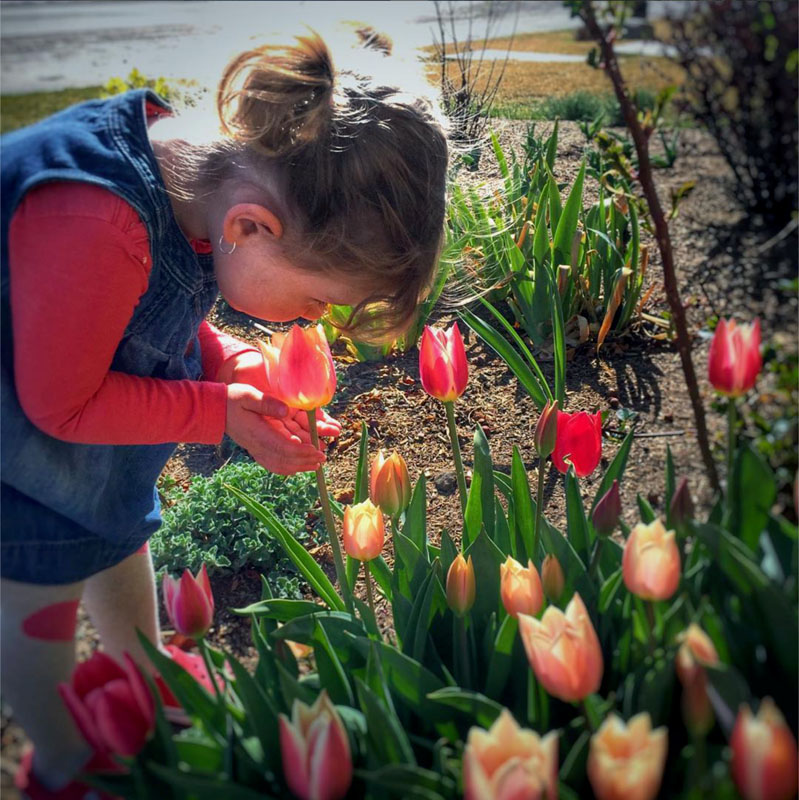
March 20 marked the first day spring.
In addition to muddy cars and dodging puddles while out walking the official start to spring means it is time to start planning and planting this year’s garden.
With Chestermere’s designation as a Bee City last year, the Chestermere Honey Bee Society founder and local beekeeper Preston Pouteaux is encouraging residents to think of bees and other pollinators as they prepare their gardens.
“We often talk about our spring garden, our summer garden, and our fall garden,” he said.
By this he means planting flowers that bloom at different times of the year to create a steady supply of food for bees.
There are a wide variety of bees and other pollinators that make Chestermere their home including bumble bees, mason bees, and of course with the many beekeepers in the area, honey bees.
This diversity is something that the Bee City program wants to perpetuate, especially with the decrease in bee populations across North America.
“There are a lot of stats that are showing that bees are in decline,” said Pouteaux.
The reason this matters is that as the bees disappear, the plants that rely on them for pollination may start to die off as well.
Programs like Bee City encourage people to think of diversity and sustainability of pollinators while working in their gardens.
When planning a garden, regardless of whether it is flowering, vegetable, or multi-seasonal, Pouteaux said that the first thing people need to think about is the dirt or soil it will be growing in.
There is an important difference between dirt and soil. Dirt is described by Pouteaux as lacking in nutrients and is primarily what is used to back fill lots.
“Dirt is what we have here in Chestermere,” said Pouteaux, “dirt is what you find underneath your grass.”
Soil on the other hand is rich in nutrients and encourages lush, verdant gardens.
“To have a good garden you need to have good soil,” he said.
By starting with good soil, one can grow a fertile garden that will feed the bees, butterflies, and other pollinators.
Once the soil is prepared, Pouteaux said that it is important to plant with lots of variety in the garden.
“Pollinators need food throughout spring, summer, and fall,” he said.
Some things that Pouteaux recommends include fruit trees, willows, berry bushes, peas and beans, and plants that are native to Alberta.
“When you do this variety…then you’ll make a little pollinator paradise,” he said.
In addition to creating an ideal environment for bees, the variety of plants can lead people to enjoy their garden more.
“Each of these different seasons makes you enjoy your garden the entire time because your expecting new things to come up,” said Pouteaux, “it gets you out in your garden a lot more.”
Getting out more is especially important after the long cold winter where people tend to spend their time indoors in front of the TV or on their computers and other devices.
“We’ve been in our basements, we’ve been in our TV rooms, we’ve been working behind screens and for a short time we get to emerge…so I encourage people to just view gardening as a way of emerging,” he said.
For city residents who aren’t sure where to start planning their garden, Pouteaux said there are a variety of resources available.
People can consult with the staff at their garden centre of choice or do some research online and the old-fashioned way with one of the many books available on the topic.
When planning his garden, Pouteaux has found a few resources particularly helpful.
“Anything by Lyndon Penner,” said Pouteaux, “Lyndon Penner has written about four books about gardening specifically in our climate.”
As far as supporting the bees Pouteaux recommends Victory Gardens for Bees by Lori Weidenhammer.
While honeybees can be a lot of work, in addition to a well-planned garden people can set up bumble bee houses or pollinator hotels in their yards to support other species of bees and pollinators.
With the current thaw, bees and insects of all sorts are starting to wake up and are looking for food and safe places to live.
“My honey bees…right now are out and about,” said Pouteaux, “they are looking for flowers.”
“They’re waiting for your first crocuses to come up,” he said.
Pouteaux reminds people that bees aren’t out looking to sting people and won’t become a problem if they are living one’s yard.
“These different solitary bees…they aren’t out to sting anybody a lot of them don’t even have stingers,” he said.
And although the spectre of more snow will continue to hang over Albertans for a few more weeks, there are still things people can do to prepare their garden.
Seeds can be started in the home now and will be ready to plant when the last of the cold weather is finally gone.
This planning and preparation in the spring will create gardens and outdoor spaces ideal for both bees and people and allow Chestermere to continue leading the way as an official Bee City.
Pouteaux said that since last year when Chestermere earned that designation, the Bee City movement is continuing to grow in Canada.
Municipalities both in Alberta and B.C. have contacted him for information about what it means to be a Bee City.
“Chestermere’s become a bit of a model for what a small municipality can look like to become a Bee City,” he said, “we’re quite proud of just telling some of those early stories about what we are as a Bee City.”








